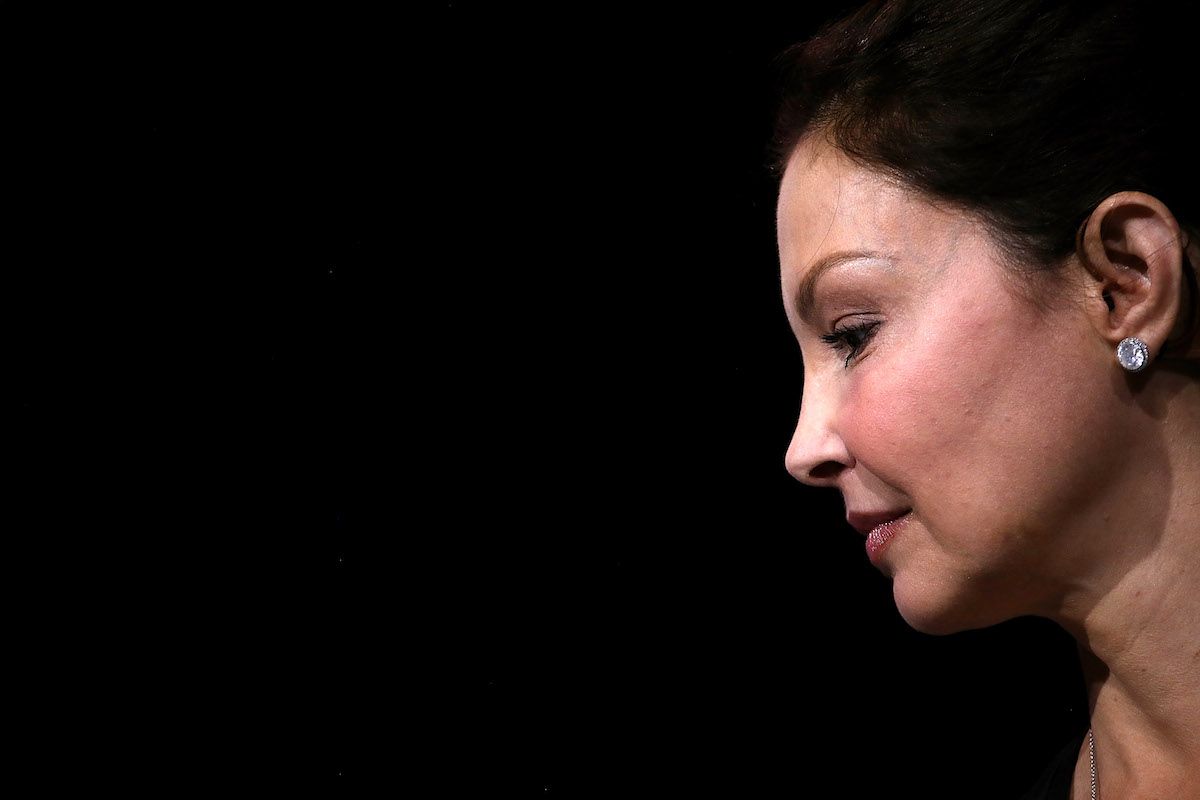Judge Says Ashley Judd Was Only Sexually Harassed “in the Colloquial Sense” in Weinstein Lawsuit Dismissal


Ashley Judd has been talking about her experience with Harvey Weinstein for years. In 2015, she told Variety a story of being harassed by a then-unnamed Hollywood Studio mogul. In October of 2017—just before the resurgence of the viral #MeToo movement—she recounted the accusations again, this time naming Harvey Weinstein as that mogul.
Now, she’s suing Weinstein, not just for the harassment in that hotel room business meeting two decades ago, but also for defamation, after the more recent revelation that after she refused his advances, Weinstein badmouthed her to director Peter Jackson, possibly costing her a role in his Lord of the Rings trilogy and also causing unknown damage to her reputation and career.
Now, though, a federal judge has dismissed the harassment part of Ashley Judd’s lawsuit against Harvey Weinstein, saying it doesn’t meet the standard for harassment under California law. This is the second time U.S. District Judge Philip Gutierrez has thrown out her harassment claim. Last year, he told her the precedent for her case didn’t apply to prospective employers.
Then, last year, the state’s legislature revised that law, specifically adding directors and producers to the list of working relationships covered under that statute, but Gutierrez ruled that those changes were so significant that they effectively made that law an entirely new law. Also, the legislature apparently didn’t specifically state that the “new” law can or should be applied retroactively, so he’s not allowing Judd to cite it in her suit.
Still, Gutierrez says he’s not denying Judd’s claims that she was harassed, just her ability to sue for harassment.
“The Court makes clear that it is not determining whether Plaintiff was sexually harassed in the colloquial sense of the term,” he wrote in his decision. “The only question presented by the current motion is whether the harassment that Plaintiff allegedly suffered falls within the scope of the California statute that she has sued under.”
This is, obviously, disappointing. A giant spotlight has been turned on to the epidemic of sexual harassment and abuse in Hollywood, and not only have the victims of that behavior had to worry about their reputations and whether they would be believed, but they weren’t even protected under state law
For those whose first response to hearing stories like Judd’s is “Why didn’t she report it?” here you go. Because very often, sexual predators know exactly what they can get away with, pushing both personal boundaries and legal ones as far as they possibly can before they break. Because they know that claims of harassment are constantly being measured against often arbitrary standards of “not that bad”—as being, say “colloquial” but not an actual crime.
Still, Judd will move forward with the defamation side of her suit against Weinstein. Additionally, he’s currently out on bail, having been charged with five counts of rape against three different women, one of whom was only 16 at the time of the alleged assault. New York state is also suing The Weinstein Company for failing to protect its staff.
So yes, it’s disappointing to see Judd’s harassment claim thrown out, but it’s likely that Weinstein will finally see some consequences for decades of alleged abuses.
(via NBC News, image: Justin Sullivan/Getty Images)
Want more stories like this? Become a subscriber and support the site!
—The Mary Sue has a strict comment policy that forbids, but is not limited to, personal insults toward anyone, hate speech, and trolling.—
Have a tip we should know? [email protected]
